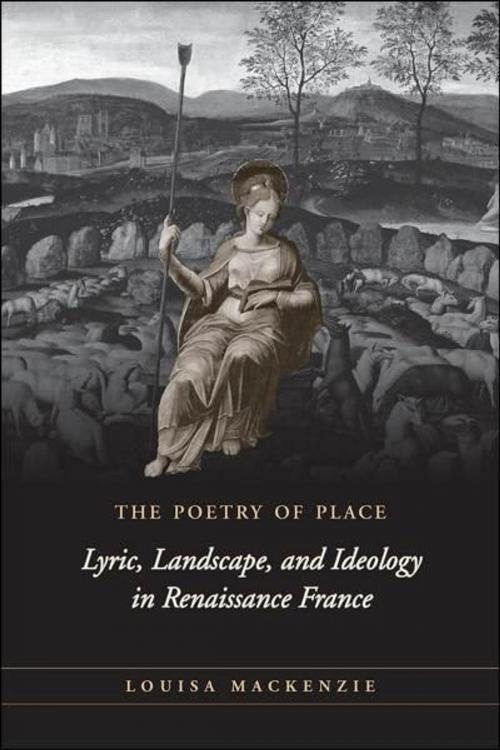The Poetry of Place
Lyric, Landscape, and Ideology in Renaissance France
Fiction & Literature, Literary Theory & Criticism, French, European, Nonfiction, History, Renaissance| Author: | Louisa MacKenzie | ISBN: | 9781442693821 |
| Publisher: | University of Toronto Press, Scholarly Publishing Division | Publication: | April 23, 2011 |
| Imprint: | Language: | English |
| Author: | Louisa MacKenzie |
| ISBN: | 9781442693821 |
| Publisher: | University of Toronto Press, Scholarly Publishing Division |
| Publication: | April 23, 2011 |
| Imprint: | |
| Language: | English |
The sixteenth century in France was marked by religious warfare and shifting political and physical landscapes. Between 1549 and 1584, however, the Pléiade poets, including Pierre de Ronsard, Joachim Du Bellay, Rémy Belleau, and Antoine de Baïf, produced some of the most abiding and irenic depictions of rural French landscapes ever written. In The Poetry of Place, Louisa Mackenzie reveals and analyzes the cultural history of French paysage through her study of lyric poetry and its connections with landscape painting, cartography, and land use history.
In the face of destructive environmental change, lyric poets in Renaissance France often wrote about idealized physical spaces, reclaiming the altered landscape to counteract the violence and loss of the period and creating in the process what Mackenzie, following David Harvey, terms 'spaces of hope.' This unique alliance of French Renaissance studies with cultural geography and eco-criticism demonstrates that sixteenth-century poetry created a powerful sense of place which continues to inform national and regional sentiment today.
The sixteenth century in France was marked by religious warfare and shifting political and physical landscapes. Between 1549 and 1584, however, the Pléiade poets, including Pierre de Ronsard, Joachim Du Bellay, Rémy Belleau, and Antoine de Baïf, produced some of the most abiding and irenic depictions of rural French landscapes ever written. In The Poetry of Place, Louisa Mackenzie reveals and analyzes the cultural history of French paysage through her study of lyric poetry and its connections with landscape painting, cartography, and land use history.
In the face of destructive environmental change, lyric poets in Renaissance France often wrote about idealized physical spaces, reclaiming the altered landscape to counteract the violence and loss of the period and creating in the process what Mackenzie, following David Harvey, terms 'spaces of hope.' This unique alliance of French Renaissance studies with cultural geography and eco-criticism demonstrates that sixteenth-century poetry created a powerful sense of place which continues to inform national and regional sentiment today.















